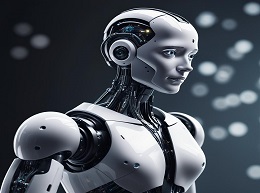The Influence of AI in the Entertainment Industry

Artificial Intelligence (AI) has emerged as a disruptive force in the entertainment industry, revolutionizing how content is created, curated, and consumed. From personalized recommendations to virtual influencers, AI is reshaping the landscape of entertainment, offering new possibilities and experiences for creators and audiences alike.
Personalized Content Recommendations
AI algorithms analyze user data and preferences to deliver personalized content recommendations across various entertainment platforms. By understanding user behavior and preferences, AI enhances user engagement and satisfaction, leading to a more tailored entertainment experience.
Example: Netflix's Recommendation System
Netflix utilizes AI algorithms to analyze user viewing habits, ratings, and interactions to recommend personalized content to its subscribers. This personalized recommendation system enhances user satisfaction and retention, driving engagement and viewership on the platform.
Content Creation and Generation
AI technologies are increasingly used in content creation, ranging from generating music and artwork to writing scripts and stories. These AI-generated creations offer new possibilities for artists and creators, pushing the boundaries of creativity and enabling innovative forms of expression.
Example: AI-Generated Art
Artists and researchers are experimenting with AI algorithms to generate artworks, music compositions, and even poetry. The use of Generative Adversarial Networks (GANs) and other AI techniques enables artists to explore new creative possibilities and challenge traditional notions of authorship and creativity.
Virtual Influencers and Characters
AI-powered virtual influencers and characters are gaining popularity in the entertainment industry, blurring the lines between reality and fiction. These virtual personas engage with audiences on social media platforms, promoting brands, products, and entertainment content.
Example: Lil Miquela
Lil Miquela, a virtual influencer created by the startup Brud, has amassed millions of followers on social media platforms like Instagram. Despite being a computer-generated character, Lil Miquela interacts with real-life influencers and brands, shaping trends and influencing consumer behavior.
Enhancing Visual Effects and Animation
AI technologies enhance visual effects and animation in film, television, and video games, enabling realistic simulations and immersive experiences for audiences. AI-driven tools automate labor-intensive tasks and streamline the creative process for visual effects artists and animators.
Example: Deep Learning for Animation
Deep learning techniques, such as neural networks, are used to enhance animation quality and realism in films and video games. These AI-driven tools enable artists to create lifelike character animations, dynamic visual effects, and immersive virtual worlds that captivate audiences.
Predictive Analytics for Audience Engagement
AI analytics tools analyze audience data and trends to predict content preferences and engagement patterns. By leveraging predictive analytics, entertainment companies can tailor their content strategies, marketing campaigns, and distribution channels to maximize audience reach and engagement.
Example: Box Office Prediction Models
AI-powered predictive analytics models forecast box office performance for films based on various factors such as genre, cast, release date, and marketing efforts. These predictive models help studios and distributors optimize their marketing strategies and release schedules to maximize box office revenue.
Ethical Considerations and Challenges
While AI offers tremendous opportunities for innovation and creativity in the entertainment industry, it also raises ethical considerations and challenges. Issues such as data privacy, algorithmic bias, intellectual property rights, and the impact of AI-generated content on traditional creative industries need to be addressed to ensure responsible and ethical use of AI in entertainment.
Conclusion: The Future of Entertainment with AI
Artificial Intelligence is transforming the entertainment industry, offering new avenues for creativity, engagement, and audience interaction. As AI technologies continue to advance, the entertainment landscape will evolve, providing creators and audiences with immersive, personalized, and innovative entertainment experiences.
In conclusion, the influence of AI in the entertainment industry is profound and far-reaching, shaping the way we create, consume, and experience entertainment. By embracing AI-driven innovations, entertainment companies can stay ahead of the curve and deliver compelling, engaging, and personalized content that resonates with audiences in an increasingly digital world.